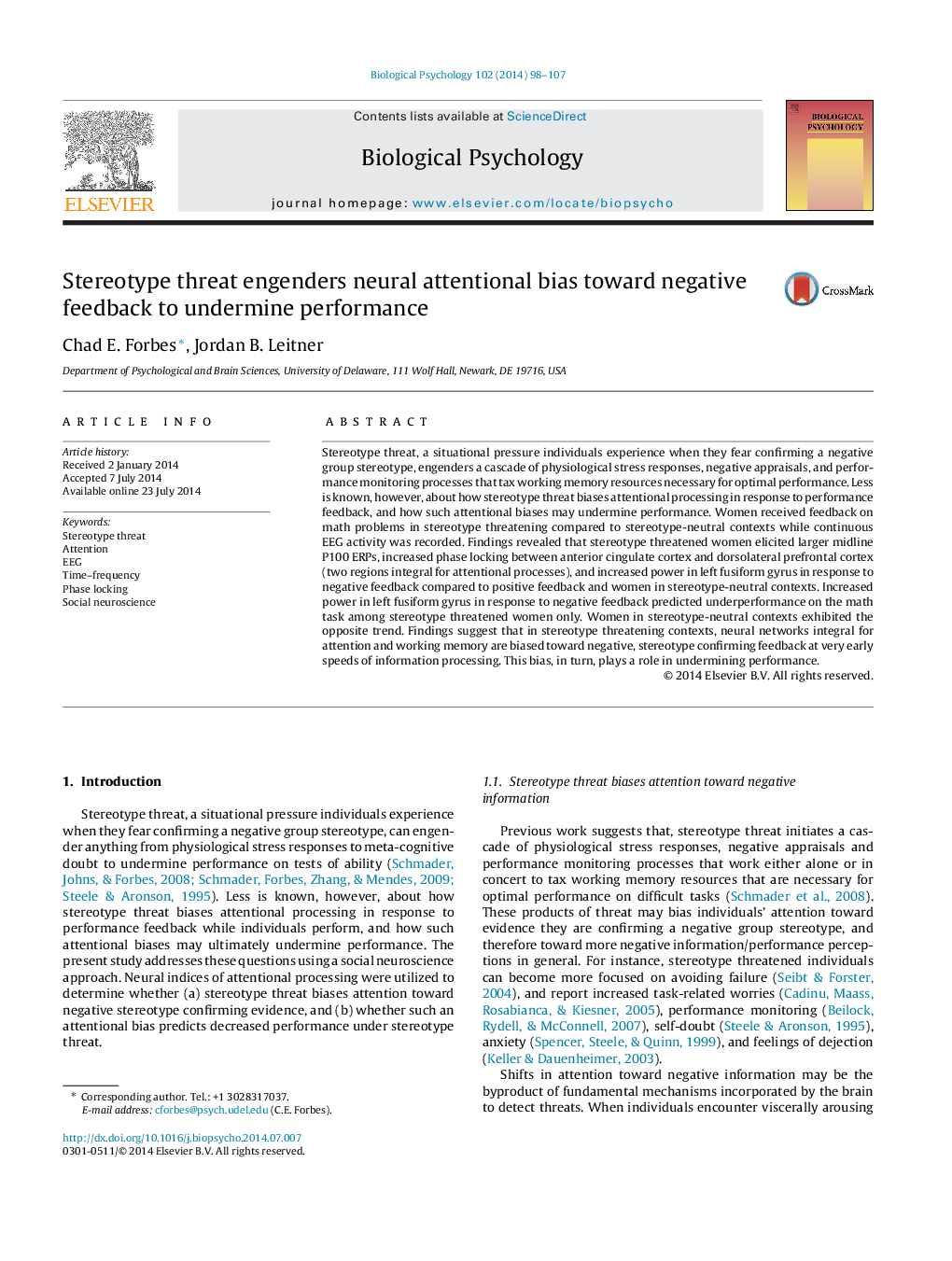| کد مقاله | کد نشریه | سال انتشار | مقاله انگلیسی | نسخه تمام متن |
|---|---|---|---|---|
| 920850 | 1473871 | 2014 | 10 صفحه PDF | دانلود رایگان |

• We examined how stereotype threat (ST) promotes an attentional bias to negative feedback among women solving math problems.
• ST women exhibited increased phase locking between ACC and DLPFC and power in temporal gyrus to negative feedback only.
• Increased temporal gyrus power to negative feedback predicted underperformance on the math task among ST women only.
• Women in stereotype-neutral contexts exhibited the opposite trend.
• Stereotype confirming evidence appears to receive privileged attentional access in ST contexts to undermine performance.
Stereotype threat, a situational pressure individuals experience when they fear confirming a negative group stereotype, engenders a cascade of physiological stress responses, negative appraisals, and performance monitoring processes that tax working memory resources necessary for optimal performance. Less is known, however, about how stereotype threat biases attentional processing in response to performance feedback, and how such attentional biases may undermine performance. Women received feedback on math problems in stereotype threatening compared to stereotype-neutral contexts while continuous EEG activity was recorded. Findings revealed that stereotype threatened women elicited larger midline P100 ERPs, increased phase locking between anterior cingulate cortex and dorsolateral prefrontal cortex (two regions integral for attentional processes), and increased power in left fusiform gyrus in response to negative feedback compared to positive feedback and women in stereotype-neutral contexts. Increased power in left fusiform gyrus in response to negative feedback predicted underperformance on the math task among stereotype threatened women only. Women in stereotype-neutral contexts exhibited the opposite trend. Findings suggest that in stereotype threatening contexts, neural networks integral for attention and working memory are biased toward negative, stereotype confirming feedback at very early speeds of information processing. This bias, in turn, plays a role in undermining performance.
Journal: Biological Psychology - Volume 102, October 2014, Pages 98–107